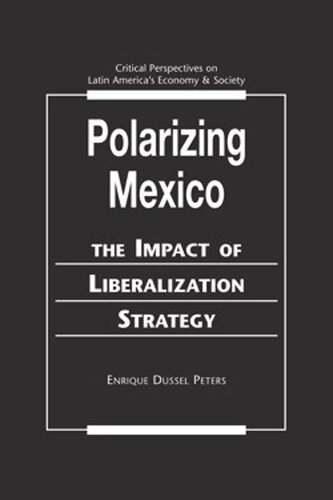

Most ebook files are in PDF format, so you can easily read them using various software such as Foxit Reader or directly on the Google Chrome browser.
Some ebook files are released by publishers in other formats such as .awz, .mobi, .epub, .fb2, etc. You may need to install specific software to read these formats on mobile/PC, such as Calibre.
Please read the tutorial at this link: https://ebookbell.com/faq
We offer FREE conversion to the popular formats you request; however, this may take some time. Therefore, right after payment, please email us, and we will try to provide the service as quickly as possible.
For some exceptional file formats or broken links (if any), please refrain from opening any disputes. Instead, email us first, and we will try to assist within a maximum of 6 hours.
EbookBell Team

4.1
40 reviewsSince the end of the 1980s, structural changes have profoundly altered Mexico's economy and society. But has the outcome been a positive one? Dussel Peters argues that liberalization strategy in Mexico has been successful in achieving its stated, short-term aims. But in looking at fundamental issues of employment and income distribution, foreign trade, and industrial specialization—regional and overall—he demonstrates that the strategy has caused a polarization of both economy and society, creating unsustainable socioeconomic conditions.This scenario, Dussel Peters contends, is not unique to Mexico, but is relevant for other nations following similar development paths. He concludes with a discussion of alternative strategies for economic development.